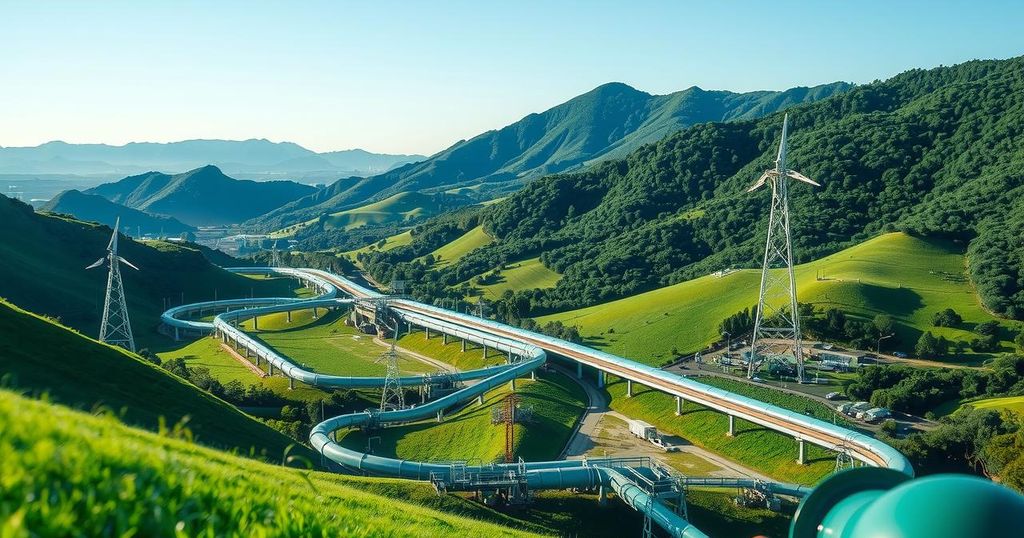Colombia is set to experience rising energy costs due to reliance on imported natural gas, as domestic production declines. Imports are expected to hit 20% of consumption in 2024, with significant price hikes already observed in retail gas. Major producers face falling outputs, exacerbated by government policies against new fossil fuel investments, leading to potential financial strains in the energy sector.
Colombia is anticipating increased energy costs in upcoming years due to a growing reliance on imported natural gas, according to Fitch Ratings. This necessity arises from escalating demand amidst a decline in domestic gas production. The country’s regulatory framework enables energy firms to transfer higher costs to consumers, yet this may attract political scrutiny as such increases could strain the economy.
Colombia primarily generates electricity from hydroelectric power but also depends on gas-fired electricity for consistent supply, particularly during droughts and peak demand periods. While historically self-sufficient in natural gas, imports are predicted to reach nearly 20% of total consumption in 2024 due to dwindling hydroelectric generation, declining domestic gas output, and geographical inconsistencies.
Industry experts expect the structural shortfall in natural gas to deepen, with domestic production anticipated to satisfy only 88% of projected demand in 2025 and 70% in 2026. Major gas transport companies, such as Transportadora de Gas Internacional S.A. ESP (TGI) and Promigas S.A. E.S.P., are undertaking significant investments in infrastructure to accommodate increasing gas imports and improve domestic connectivity.
Gas prices have surged in various regions. For instance, in February 2025, Vanti implemented a 36% price increase in Bogotá, while EPM raised prices by 21% in Medellín. Other distributors, including Gascaribe, Surtigas, and GDO, have managed to maintain stable supply and moderate price adjustments through access to smaller gas fields in northern and southwestern regions.
Colombia’s natural gas reserves are dwindling, with forecasts suggesting a mere six years of supply remaining by 2025 if the current production rate continues. Two dominant producers, Ecopetrol S.A. and Canacol Energy Ltd., which control significant market shares, have experienced declining production levels. Total outputs from vital fields have decreased from 550 GBtu per day to 425 GBtu per day in a year’s time.
The downturn in domestic gas output, exacerbated by geological challenges, has been further influenced by governmental policies discouraging investment in the oil and gas sector. Colombia recently became the first Latin American nation to endorse the Fossil Fuel Non-Proliferation Treaty at COP28 and declared a halt on new oil drilling contracts.
Gas distributors operate under a regulated tariff system allowing them to pass supply costs to consumers. Nevertheless, rising energy prices are likely to elevate capital needs and intensify political pressures on energy companies across the supply chain. Even with regulatory protections, electricity distribution firms are facing financial strain due to this past year’s surging energy costs and political intervention. Companies like EPM may need to provide financial assistance to subsidiaries like Afinia, which are severely impacted by delayed subsidy payments.
In summary, Colombia is confronting an impending rise in energy costs due to an increased reliance on imported natural gas amid declining domestic production. While regulatory frameworks allow price adjustments to consumers, rising costs may lead to political pressure and financial strains within the electricity distribution sector. The challenges posed by diminishing gas reserves and governmental policies further intensify the situation, necessitating a careful strategic response from energy firms and regulators alike.
Original Source: www.financecolombia.com






